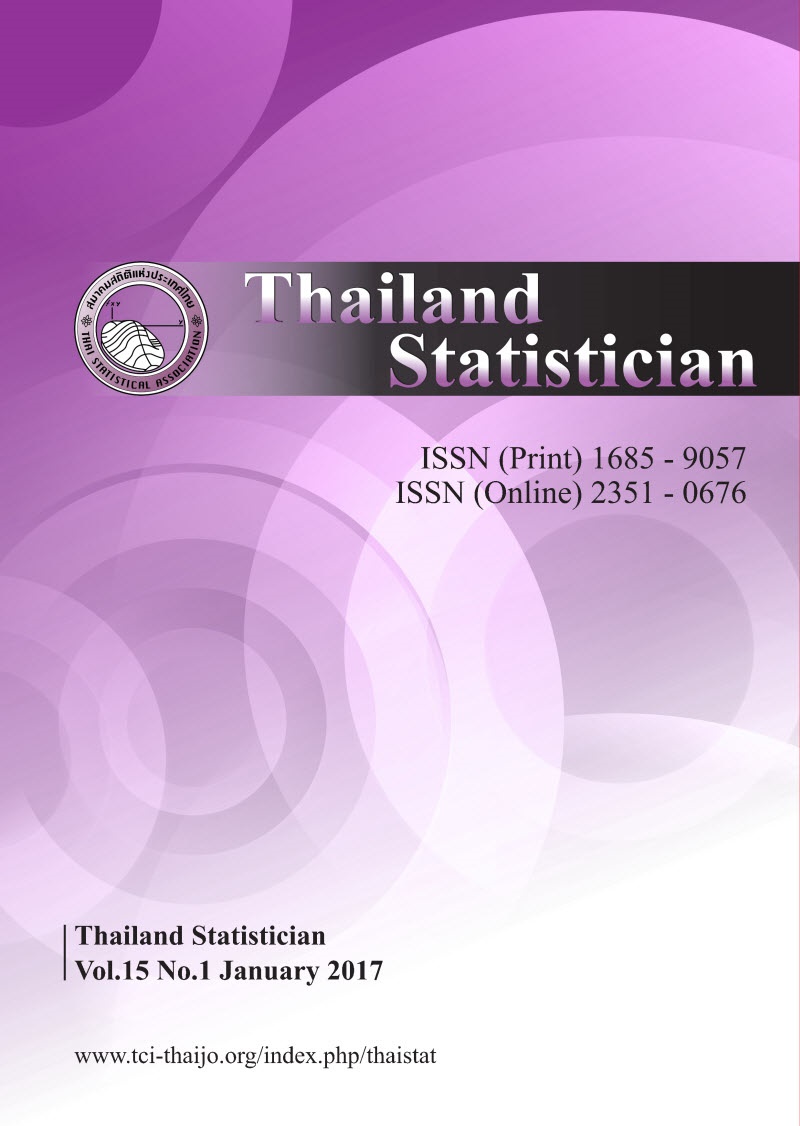Bayesian Analysis of Zero–Altered Poisson Regression Models
Keywords:
Bayesian, GLMs, zero-altered Poisson distribution, dispersed probability models, WinBUGSAbstract
This study introduces the generalized zero-altered Poisson regression model with the suitable link functions of parameters. There are three different models based on the effects of parameters in the generalized zero-altered Poisson regression models. The Bayesian approach is studied which the prior distributions of regression parameters in both linear predictors are specified as independent normal distributions for the fixed effects and inverse-gamma distributions for the random effects. The Bayesian estimation method can be carried out using WinBUGS. Simulation study in the generalized zeroaltered Poisson regression models illustrates that the Bayesian approach is satisfactory estimation method for fixed effects model (Model I) at large sample sizes and even larger sample sizes for the mixed models (Model II and Model III). For application, generalized zero-altered Poisson regression models are applied to the number of births of a reproductive woman in the south of Thailand. The results showed that number of births was significantly affected by age of women, number of household members, age at first birth, and number of additional children wanted in both linear predictors. In addition, the religion, place of residence, and education were significantly effects in the Poisson linear predictor. The age at first marriage was significantly effect in the dispersion linear predictor.Downloads
How to Cite
Kunthong, T., Ghosh, S. K., & Chaimongkol, S. (2015). Bayesian Analysis of Zero–Altered Poisson Regression Models. Thailand Statistician, 11(2), 111–131. retrieved from https://ph02.tci-thaijo.org/index.php/thaistat/article/view/34207
Issue
Section
Articles




